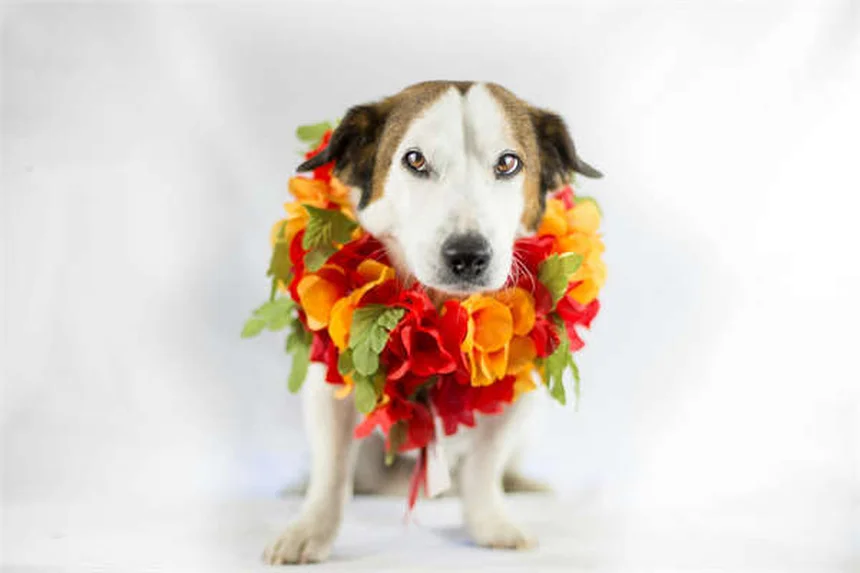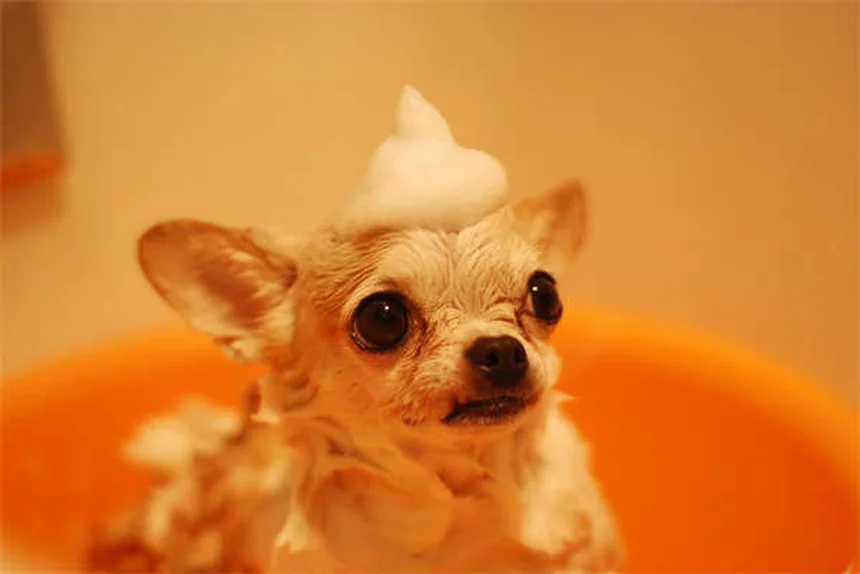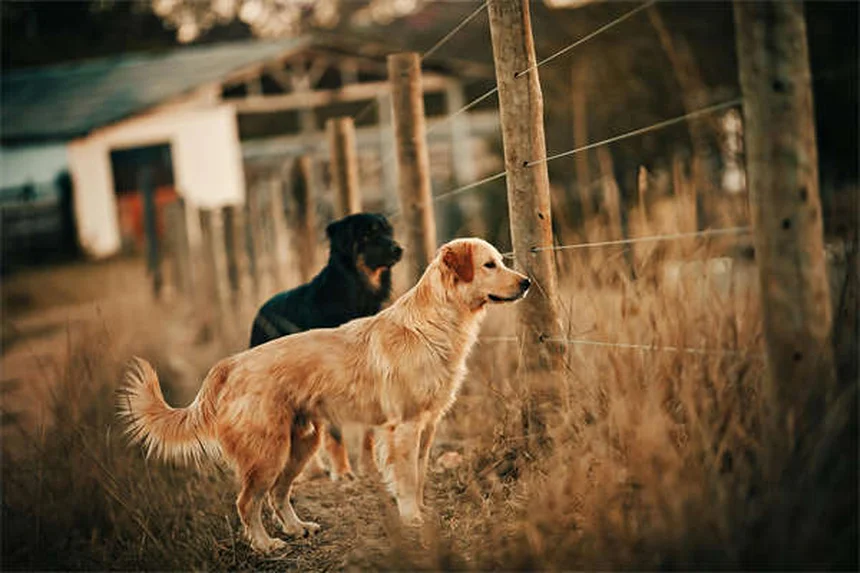Can gerbils get salmonellosis? The answer is yes - gerbils can contract salmonellosis, though it's relatively rare in pet gerbils. Here's what you need to know: this bacterial infection spreads through contaminated food, water, or bedding, often from wild rodents. The scary part? Your gerbil might look perfectly healthy while spreading Salmonella to other pets and even to you - that's why we call it a zoonotic disease.
I've seen too many gerbil owners panic when they first hear about salmonellosis, but here's the deal: while treatment options are limited, there's plenty we can do to prevent it. From proper cage hygiene to recognizing early symptoms like depression and diarrhea, staying informed is your best defense. Let me walk you through what really works to keep your furry friends safe.
E.g. :Cholangiofibrosis in Hamsters: Symptoms, Causes & Care Tips
- 1、Understanding Salmonella in Gerbils
- 2、Spotting the Warning Signs
- 3、Diagnosing the Problem
- 4、Treatment Options (Or Lack Thereof)
- 5、Living With an Infected Gerbil
- 6、Prevention Strategies That Work
- 7、The Human Factor
- 8、The Bottom Line
- 9、Beyond the Basics: Expanding Your Gerbil Health Knowledge
- 10、Environmental Factors You Might Be Overlooking
- 11、Alternative Prevention Methods Worth Considering
- 12、When Prevention Fails: Advanced Care Options
- 13、Looking to the Future
- 14、FAQs
Understanding Salmonella in Gerbils
What Exactly is Salmonellosis?
Let me break this down for you - salmonellosis is that nasty bacterial infection caused by Salmonella that can turn your gerbil's life upside down. While it's not super common in pet gerbils, when it hits, it hits hard. Picture this: your furry friend accidentally snacks on some contaminated food or water that's been tainted by wild rodent poop. Boom - infection city!
Here's the scary part - your gerbil might look perfectly healthy while secretly being a Salmonella spreading machine. And yes, before you ask - this is one of those diseases that can jump from pets to humans. That's why we need to treat it like the serious business it is.
How Does This Bug Spread?
Ever wonder how this whole mess starts? The Salmonella bacteria typically hitchhikes into your gerbil's system through:
- Contaminated food or water (thanks to infected wild rodents)
- Dirty bedding that's been exposed to the bacteria
- Shared equipment between infected and healthy gerbils
I know what you're thinking - "But my gerbil lives in a clean cage!" Here's the thing - it only takes one curious wild mouse sneaking into your pet's space to start trouble. That's why prevention is worth a pound of cure.
Spotting the Warning Signs
 Photos provided by pixabay
Photos provided by pixabay
Physical Symptoms to Watch For
Your gerbil won't be able to tell you when something's wrong, so you've got to be their detective. Here are the red flags:
| Symptom | What You'll Notice |
|---|---|
| Depression | Your usually active gerbil becomes a couch potato |
| Dehydration | Skin stays tented when gently pinched |
| Coat changes | That sleek fur turns rough and messy |
| Digestive issues | Diarrhea and a swollen belly |
Pregnant gerbil moms face extra risks - we're talking potential miscarriage territory here. Not something any pet owner wants to deal with.
Behavioral Changes
Beyond the physical stuff, your gerbil's personality might do a 180. Normally social? Suddenly antisocial. Usually hungry? Now turning up their nose at food. These subtle changes often come before the obvious physical symptoms.
Diagnosing the Problem
What Your Vet Needs to Know
When you rush to the vet (and you should), come prepared with:
- A timeline of when symptoms started
- Details about any recent changes in environment or diet
- Notes about how symptoms have progressed
Your vet will likely run some tests - blood work, urine analysis, the whole nine yards. They might even need to culture some poop (glamorous, I know) to confirm it's Salmonella causing the trouble.
 Photos provided by pixabay
Photos provided by pixabay
Physical Symptoms to Watch For
"Can't we just guess based on symptoms?" you might ask. Here's why that's a bad idea: many gerbil illnesses share similar symptoms. Without proper testing, you could be treating the wrong problem while the real issue gets worse.
Treatment Options (Or Lack Thereof)
The Hard Truth About Treatment
I wish I had better news here, but the reality is Salmonella infections in gerbils are tough to treat. Most vets focus on supportive care:
- Fluid therapy to combat dehydration
- Electrolyte supplements
- Comfort measures
Some might try broad-spectrum antibiotics, but let's be real - it's like bringing a squirt gun to a wildfire. The bacteria often win this battle.
Making Them Comfortable
While we can't promise miracles, we can make sure our little friends aren't suffering. Keep them warm, quiet, and hydrated. Your vet might suggest special nutritional support too.
Living With an Infected Gerbil
 Photos provided by pixabay
Photos provided by pixabay
Physical Symptoms to Watch For
First rule of Salmonella club? Isolate the sick gerbil immediately. No playdates, no shared cages, nada. Think of it like setting up a tiny gerbil ICU in your home.
And here's a pro tip: wear disposable gloves when handling anything in the sick bay. Salmonella doesn't care if it infects you or your other pets.
Cleaning Like Your Life Depends On It
Because honestly, it kinda does. Here's your battle plan:
- Toss any porous materials (wooden toys, fabric items)
- Scrub non-porous items with veterinary-grade disinfectant
- Consider replacing the entire cage if possible
Remember - Salmonella bacteria can survive in the environment longer than your gerbil's favorite TV show marathon.
Prevention Strategies That Work
Daily Habits for Healthy Gerbils
Want to avoid this nightmare? Make these habits part of your routine:
- Daily spot cleaning of cages
- Weekly deep cleans with proper disinfectants
- Separate housing for different age groups
It's like brushing your teeth - boring but necessary if you want to avoid bigger problems.
Wildlife Proofing Your Setup
Here's a fun fact: wild rodents are basically Salmonella delivery trucks. Keep them out by:
- Using secure, chew-proof cages
- Storing food in rodent-proof containers
- Keeping the gerbil area clean and unattractive to wild visitors
Think of it as building a tiny fortress against microscopic invaders.
The Human Factor
Protecting Yourself
Since we're talking about a zoonotic disease (that's science-speak for "can jump to humans"), you need to protect yourself too. Always:
- Wash hands thoroughly after handling gerbils or their equipment
- Use gloves when cleaning cages
- Keep gerbil areas separate from food prep areas
Your mom was right - washing your hands really does prevent a lot of problems.
When to Seek Human Medical Help
If you develop diarrhea, fever, or abdominal cramps after handling a sick gerbil, don't tough it out. Call your doctor and mention the Salmonella exposure. Better safe than hugging the toilet for days.
The Bottom Line
Why This Matters
Look, I get it - reading about sick gerbils isn't anyone's idea of fun. But here's the thing: understanding Salmonella risks could save your pet's life and protect your family's health. That's worth a few minutes of your time, right?
Your Action Plan
Now that you're armed with knowledge, here's what to do next:
- Review your current gerbil care routine
- Identify any weak spots in prevention
- Make necessary changes before problems start
Remember - when it comes to Salmonella, an ounce of prevention really is worth a pound of cure. Your gerbils (and your stomach) will thank you.
Beyond the Basics: Expanding Your Gerbil Health Knowledge
The Hidden Dangers in Common Foods
You might be surprised to learn that some everyday foods in your kitchen could be Salmonella carriers. Raw eggs and poultry are obvious culprits, but did you know that even fresh produce can harbor these bacteria? A 2021 FDA study found Salmonella in:
- 12% of imported cantaloupes
- 8% of cilantro samples
- 5% of packaged salad greens
This means when you're sharing that healthy snack with your gerbil (because who can resist those cute begging eyes?), you might accidentally be sharing more than just nutrients. Always wash produce thoroughly and consider cooking vegetables before offering them to your pet.
The Gut Microbiome Connection
Here's something fascinating - not all gerbils exposed to Salmonella get sick. Why? It all comes down to their gut microbiome. Just like in humans, the balance of good and bad bacteria in your gerbil's digestive system plays a huge role in disease resistance.
You can support your gerbil's gut health by:
- Providing high-fiber hay (timothy or orchard grass work great)
- Offering small amounts of probiotic-rich foods like plain yogurt
- Avoiding unnecessary antibiotics that can wipe out good bacteria
Environmental Factors You Might Be Overlooking
Temperature and Humidity's Role
Did you know Salmonella bacteria thrive in specific conditions? They love:
| Condition | Ideal Range for Salmonella | What This Means for Gerbil Owners |
|---|---|---|
| Temperature | 35-37°C (95-98.6°F) | Keep cages away from heat sources |
| Humidity | High moisture environments | Avoid damp bedding and ensure proper ventilation |
| pH Level | Neutral to slightly alkaline | Clean with mild acidic solutions (like vinegar mixes) |
By controlling these factors in your gerbil's environment, you're essentially creating a neighborhood that Salmonella bacteria would hate to move into!
The Stress Factor
Here's something most pet owners don't consider - stress weakens immune systems. A gerbil dealing with constant stress (from loud noises, frequent handling, or aggressive cage mates) becomes much more susceptible to infections.
Create a zen environment by:
- Providing multiple hiding spots in the cage
- Maintaining consistent daily routines
- Using calming scents like lavender (in very small amounts)
Alternative Prevention Methods Worth Considering
Natural Antimicrobial Options
While nothing replaces proper hygiene, some natural substances show promise in fighting Salmonella. University studies have found these particularly interesting:
- Manuka honey: Shown to inhibit Salmonella growth at concentrations as low as 10%
- Oregano oil: Effective against multiple Salmonella strains in lab tests
- Cranberry extract: Contains compounds that prevent bacterial adhesion
Now, before you start dousing your gerbil in honey, remember - these are supplements, not cures. Always consult your vet before trying anything new.
The Power of Enrichment
Here's a fun fact - mentally stimulated gerbils tend to have stronger immune responses. It turns out that preventing boredom might be just as important as preventing bacterial exposure!
Try these enrichment ideas:
- Food puzzles made from cardboard tubes
- Digging boxes filled with safe substrates
- Rotating toys to maintain novelty
When Prevention Fails: Advanced Care Options
Supportive Care Innovations
Veterinary medicine has come a long way in supportive care for small pets. Some cutting-edge options now include:
- Subcutaneous fluid therapy that owners can administer at home
- Nutritional pastes specifically formulated for ill rodents
- Heated recovery chambers that maintain ideal temperatures
Ask your vet about these options if you're facing a Salmonella outbreak in your gerbil family. They could make all the difference in recovery chances.
The Emotional Toll of Caregiving
Let's talk about something we don't discuss enough - how emotionally draining it is to care for a sick pet. Watching your usually energetic gerbil become lethargic and ill can be heartbreaking.
Remember to:
- Take breaks when needed - you can't pour from an empty cup
- Reach out to pet support groups if you're struggling
- Celebrate small victories in recovery
Looking to the Future
Emerging Research on Rodent Vaccines
Exciting developments are happening in veterinary medicine! Researchers are currently testing:
- Oral vaccines that could protect against multiple Salmonella strains
- Probiotic vaccines that use good bacteria to crowd out pathogens
- DNA-based vaccines that trigger immune responses without exposure
While these aren't available yet, they represent hope for future gerbil owners. Who knows? In a few years, preventing Salmonella might be as simple as adding a vaccine to your annual pet care routine.
Community Science Opportunities
Did you know you could contribute to Salmonella research? Many universities welcome reports from pet owners about disease outbreaks in small animals. Your experiences could help shape future prevention strategies!
Consider:
- Documenting any illness cases thoroughly
- Reaching out to local veterinary schools
- Participating in surveys about pet health
E.g. :Contagious Bacterial Disease Due to Salmonella in Gerbils | PetMD
FAQs
Q: How do I know if my gerbil has salmonellosis?
A: Watch for these telltale signs: your gerbil will seem depressed (not their usual active self), have a rough coat, and possibly show digestive issues like diarrhea or a distended abdomen. Pregnant gerbils might miscarry. The tricky part? These symptoms mirror other illnesses too. That's why we always recommend vet visits for proper testing - they'll need blood work and fecal cultures to confirm Salmonella. Don't wait until it's too late - early detection gives your pet the best chance.
Q: Can humans catch salmonellosis from gerbils?
A: Absolutely, and this is why we take it so seriously. Salmonella can jump from gerbils to humans through direct contact or contaminated surfaces. Always wash your hands after handling your pets or cleaning their cages. If you develop fever, diarrhea, or stomach cramps after contact with a sick gerbil, see your doctor immediately. I recommend wearing disposable gloves when dealing with potentially infected animals - better safe than sorry!
Q: What's the treatment for gerbil salmonellosis?
A: Here's the hard truth - treatment options are limited. Most vets focus on supportive care like fluids and electrolytes to help your gerbil fight the infection. Some might try broad-spectrum antibiotics, but honestly, the success rate isn't great. That's why prevention is everything in our book. If your gerbil does get infected, quarantine is crucial to protect your other pets (and yourself). Work closely with your vet to make your little friend as comfortable as possible.
Q: How can I prevent salmonellosis in my gerbils?
A: After 10 years in this field, I've got prevention down to a science. First, maintain military-level cage hygiene - daily spot cleaning and weekly deep cleans with proper disinfectants. Keep wild rodents out by using chew-proof cages and sealed food containers. Never house different age groups together, as younger gerbils are more vulnerable. And here's a pro tip: rotate toys and regularly replace bedding to minimize bacterial buildup. These simple steps dramatically reduce Salmonella risks.
Q: Should I throw away my gerbil's cage if they get salmonellosis?
A: It depends on the cage material. Porous items like wooden toys or fabric hammocks should definitely be tossed - you'll never fully disinfect them. For plastic or metal cages, a thorough scrub with veterinary-grade disinfectant might suffice, but if the cage is old or scratched (giving bacteria places to hide), replacement is smarter. Remember, Salmonella bacteria can survive weeks in the environment. When in doubt, consult your vet - they've seen it all and can give you the best advice for your specific situation.


